- Home
- Rosamunde Pilcher
The Shell Seekers Page 10
The Shell Seekers Read online
Page 10
“It doesn’t seem the same without her, does it?” Antonia s aid sadly as they made their way down the terrace.
“Nothing ever does,” Olivia told her.
Podmore’s Thatch,
Temple Sudbury,
Glos.
Aug 17th
My dear Olivia and Cosmo,
How can I thank you for being so endlessly kind and for giving me such an unforgettable holiday? No day passed when I did not feel welcome and cherished, and I have returned home with as many memories as a crowded photograph album. Ca’n D’alt is a truly magic place, your friends charming and so hospitable, and the island—even, or perhaps I should say especially, the topless beaches—quite fascinating. I miss you all so much, in particular Antonia. It is a long time since I have spent so much rewarding time with such an enchanting young person. I could go on drivelling for ever, but I think you both know how grateful I am. I am sorry I have not written before, but there hasn’t been a moment. The garden is a riot of weeds and the rosebeds are nothing but dead heads. Perhaps I should find a gardener.
Talking of gardeners, I stopped off in London for a couple of days on my way home, stayed with the Friedmanns and went to a delicious concert at the Festival Hall. Also took the earrings to Collingwood’s to be valued, as you said I must, and you won’t believe it, but the man said they were worth at least £4,000. When I’d finished fainting I inquired about insuring them, but the premium quoted was so enormous, I simply took them to the bank as soon as I got home, and left them there. Poor things, they seem doomed to spend their lives in the bank. I could sell them, I suppose, but they are so pretty. Still, nice to know that they’re there, and the money realizable if I suddenly decide to do something mad, like buy myself a motor tractor for cutting the grass. (This explains reference to gardeners.)
Nancy and George and the children came for lunch last Sunday, ostensibly to hear about Ibiza, but really to tell me the iniquities of the Croftways, and how they had been invited to luncheon by the Lord Lieutenant. I gave them pheasant and fresh cauliflower from the garden, and apple crumble laced with mincemeat and brandy, but Melanie and Rupert grizzled and argued, and made no effort to disguise their boredom. Nancy is useless with them, and George doesn’t seem even to notice their appalling manners. I became so irritated with Nancy that, to tease, I told her about the earrings. She showed no particular interest—she never once went to see poor Aunt Ethel—until I came to the magic words, four thousand pounds, whereupon she sprang to attention, for all the world like a gun dog scenting game. Her mind has always been easy to read, and I knew that her imagination was racing ahead, perhaps to Melanie’s coming-out dance, with a paragraph or two in the social page of Harpers and Queen. “Melanie Chamberlain, one of the prettiest debutantes this year, wore white lace and her grandmother’s famous gold-and-ruby earrings.” Perhaps I was mistaken.
How cruel I am, and disloyal to my daughter, but I cannot resist sharing the little joke with you.
My thanks again. So inadequate, but what other words are there for gratitude.
With love, Penelope.
The months passed. Christmas came and went. Now it was February. There had been rain and some storms, and they spent much of their time indoors with a blazing fire, but all at once came a breath of spring to the air, blossom on the almond trees, and enough warmth at midday to sit for a little while out of doors.
February. By now Olivia believed that she knew everything there was to know about Cosmo. But she was wrong. One afternoon, walking up from the garden with a basket of little bantams’ eggs in her hand, she heard a car approaching, and stopping beneath the olive tree. As she climbed the steps to the terrace, she saw a strange man coming towards her. Obviously a local, but dressed more formally than was the usual, in a brown suit and collar and tie. On his head was a straw hat, and he carried a folder of papers.
She smiled inquiringly and he doffed the hat. “Buenos días.”
“Buenos días.”
“Señor Hamilton?”
Cosmo was indoors, writing letters.
“Yes?”
He spoke in English. “If I could see him. Tell him Carlos Barcello. I will wait.”
Olivia went in search of Cosmo and found him at his desk in the living room.
“You have a visitor,” she told him. “By the name of Carlos Barcello.”
“Carlos? Oh, God, I forgot he was coming.” He laid down his pen and got to his feet. “Better go and have a word.” He left her, running down the stairs. She heard his greeting. “Hombre!”
She took the eggs into the kitchen and laid them, one by one, into a yellow china bowl. Then, filled with curiosity, she went to the window and watched Cosmo and Mr. Barcello, whoever he was, making their way down to the swimming pool, deep in conversation. They stayed there for a bit and then returned to the terrace, where they spent some time inspecting the well. After that she heard them come indoors, but they appeared to get no farther than the bedroom. The lavatory was flushed. She wondered if Mr. Barcello was a plumber.
They went out onto the terrace again. There was a bit more chat, and then they said goodbye and she heard Mr. Barcello’s car start up and drive away. Presently Cosmo’s footsteps sounded on the stairs, and she heard him going into the living room, throw a log on the fire and, presumably, settle down once more to his letter-writing.
It was nearly five o’clock. She boiled a kettle and made a pot of tea, and carried this through to him.
“Who was that?” she asked, setting down the tray.
He was still writing, “Um?”
“Who was your visitor? Mr. Barcello.”
He turned in his chair to smile at her in some amusement.
“Why do you sound so curious?”
“Well, of course I’m curious. I’ve never seen him before. And he’s pretty smartly turned out for a plumber.”
“Who said he was a plumber?”
“Isn’t he?”
“Good God, no,” said Cosmo. “He’s my landlord.”
“Your landlord?”
“Yes, my landlord.”
She felt, all at once, shivery with cold. She folded her arms across her chest, gazing at him; willing him, in some way, to explain to her that she had misunderstood, was mistaken.
“You mean you don’t own this house?”
“No.”
“You’ve lived here for twenty-five years and you don’t own it.”
“I told you. No.”
It seemed to Olivia almost obscene. The house, so lived-in, full of their shared memories; the tended garden, the little swimming pool; the view. It wasn’t Cosmo’s. Never had been. It all belonged to Carlos Barcello.
“Why did you never buy it?”
“He would never sell.”
“You never thought of looking for another?”
“I didn’t want another house.” He got to his feet, slowly, as though the letter-writing had wearied him. He pushed the chair aside and went to take a cigar from the box on the shelf over the fireplace. With his back to her, he went on, “And anyway, once Antonia started school, I was committed to paying her fees. After that, I couldn’t afford to buy anything.” There was a jar of spills on the hearth and he stooped to take one and held it to the flames for a light.
I couldn’t afford to buy anything. They had never talked about money. The subject was one that had never come up between them. During the months that they had been together, Olivia had, without question, chipped in with her share of the ordinary day-to-day expenses of living. Paying for a carton of groceries at the market checkout, or a tankful of petrol. Sometimes, as naturally happens, he would find himself short of ready cash, and then Olivia picked up the bill for drinks in a bar or one of their occasional evenings out. She was, after all, not penniless, and just because she was living with Cosmo did not mean that she expected to be kept by him. Questions stirred at the back of her mind, but she felt afraid to ask them, because she was afraid of what the answers might be.
She watched him in silence. The cigar lighted, he threw the spill into the flames and turned to face her, his shoulders supported by the mantelshelf.
He said, “You look very shocked.”
“I am shocked, Cosmo. I find it almost impossible to believe. It goes against the grain of something I feel most strongly about. To own your own house has always seemed to me the most important of priorities. It gives you security in every sense of the word. Oakley Street belonged to my mother, and because of that, as children, we always felt safe. Nobody could take it away from us. One of the best feelings in the world was coming home, indoors, off the street, and closing the door and knowing you were home.”
He made no comment on this, only asked her, “Do you own your house in London?”
“Not yet. But I shall in two years’ time, when I finally pay off the building society.”
“What a business woman you are.”
“You don’t have to be a business woman to work out that it’s uneconomic to pay rent for twenty-five years and at the end of the day have nothing to show for it.”
“You think I’m a fool.”
“Cosmo, no. I don’t think that. I suppose I can see how it all came about, but that doesn’t stop me being concerned.”
“For me.”
“Yes, for you. I’ve just realized that I’ve been living with you all this time, and never given a thought to what we’ve been living on.”
“Do you want to know?”
“Not unless you want to tell me.”
“The income from a few investments that my grandfather left me, and my Army Pension.”
“And that’s all?”
“That’s the sum of it.”
“And if anything should happen to you, your Army Pension will die with you.”
“Naturally.” He grinned at her, trying to coax a smile into her intent and frowning face. “But let’s not bury me just yet. I am, after all, only fifty-five.”
“But Antonia?”
“I can’t leave her what I haven’t got. I simply hope that by the time I drop off the hook, she’ll have found herself a rich husband.”
They had been arguing, but without heat. When he came out with this, however, all Olivia’s instincts rose to the boil and she lost her temper.
“Cosmo, don’t say things like that, don’t talk in that ghastly archaic Victorian way, condemning Antonia to dependence on some man for the rest of her life. She should have money of her own. Every woman should have something of her own.”
“I didn’t realize that money was so important to you.”
“It’s not important to me. It never has been. It’s only important if you haven’t got any. And because it buys lovely things; not fast cars or fur coats or cruises to Hawaii or any of that rubbish, but real, lovely things, like independence and freedom and dignity. And learning. And time.”
“Is this why you’ve worked all your life? So that you could cock a snook at the arrogant male, the Victorian paterfamilias?”
“That’s not fair! You make me sound like the worst sort of Women’s Libber, an aggressive great lesbian with a foul placard.”
He did not reply to this outburst, and she felt instantly ashamed, wishing the angry words unsaid. They had never really quarrelled before. Her quick rage died and reason took its place. She answered his question, her voice deliberately calm. “Yes. It is one of the reasons. I told you my father was a lightweight sort of man. He never influenced me in any way. But I am always determined to emulate my mother, to be strong and independent of everybody. And, as well, I have a creative need to write, and the sort of journalism which is my profession fulfils that need. So, I’m lucky. I do what I love to do, and I get paid for it. But that isn’t all. There’s a compulsion somewhere, a driving force that’s too strong to fight. I need the conflict of a demanding job, decisions, deadlines. I need the pressures, the flow of adrenalin. It turns me on.”
“And does it make you happy?”
“Oh, Cosmo. Happiness. There’s not a Blue-bird, an End to the Rainbow. I suppose what it boils down to is that if I’m working, I’m never totally unhappy. And if I’m not working, I’m never totally happy. Does that make sense?”
“So you haven’t been totally happy here?”
“These months with you are different, like nothing that’s ever happened before. It’s been like a dream, stolen out of time. And I’ll never cease to be endlessly grateful to you for giving me something that no person can ever take away. A good time. Not a good time, but a good time. But you can’t dream forever. You have to wake up. Soon, I shall start getting restless and probably irritable. And you will wonder what is wrong with me and so shall I. And I shall make a small private analysis of the problem and discover that it’s time I went back to London, picked up the threads, and got on with my life.”
“When will that be?”
“Next month maybe. March.”
“You said a year. That’s only ten months.”
“I know. But Antonia comes out again in April. I think I should be gone by then.”
“I thought you enjoyed each other’s company.”
“We did. That’s why I’m going. She mustn’t expect me to be here; I mustn’t become important to her. Besides, I have a lot of problems waiting for me, not least sorting out a job for myself.”
“Will you get your old job back?”
“If I don’t, I’ll get a better one.”
“You’re very confident.”
“I have to be.”
He sighed deeply, and then, with a gesture of impatience, flung the half-smoked cigar into the fire. He said, “If I asked you to marry me, would you stay?”
She said hopelessly, “Oh, Cosmo.”
“You see, I find it hard to contemplate a future without you.”
“If I married any man,” she told him, “it would be you. But I told you, that first day I came to Ca’n D’alt. I’ve never wanted to be married, have children. I love people. I’m fascinated by them, but I need my privacy too. To be myself. To live alone.”
He said, “I love you.”
She crossed the small space that lay between them and put her arms around his waist and laid her head against his shoulder. Through his sweater, his shirt, she could hear the beat of his heart.
She said, “I made tea, and we never drank it and now it will be cold.”
“I know.” She felt his hand touch her hair. “Will you come back to Ibiza?”
“I don’t think so.”
“Will you write to me? Keep in touch.”
“I’ll send you Christmas cards with robins on them.”
He put his hands on either side of her head and turned her face up to his. The expression in his pale eyes was immeasurably sad.
“Now I know,” he told her.
“Know what?”
“That I’m going to lose you forever.”
4
NOEL
At half past four on that cold, dark, wet March Friday, while Olivia threatened her Fiction Editor with dismissal and Nancy wandered bemusedly around Harrods, their brother Noel cleared his desk in the futuristic offices of Wenborn and Weinburg, Advertising Agents, and took himself home.
The office did not close until five-thirty, but he had worked there for five years and reckoned that the occasional early departure was no more than his due. His colleagues, used to his ways, raised not so much as an eyebrow, and if he chanced to encounter one of the senior partners on his way to the lift, he had his cover story ready: he was feeling lousy, probably getting flu, and was going home to bed.
He did not meet one of the senior partners and he was not going home to bed, but to drive to Wiltshire for the weekend, to stay with some people called Early, whom he had never met. Camilla Early was an old school friend of Amabel’s, and Amabel was Noel’s current woman.
“They’re having a house party for the local point-to-point on Saturday,” Amabel had told him. “It might be all right.”
“Have t
hey got central heating?” Noel asked cautiously. At this time of the year, he had no intention of spending so much as an hour shivering over an inadequate log fire.
“Oh, heavens yes. Actually, they’re loaded. They used to fetch Camilla from school in an enormous Bentley.”
It sounded hopeful. The sort of place where one might meet useful people. Going down in the lift, he put the problems of the day behind him and let his mind go nosing ahead. If Amabel was on time, they should be out of London before the Friday-evening exodus of traffic. He hoped that she would bring her car, so that they could make the journey in that. His Jag was making strange knocking sounds, and if they went in her car, there was always the possibility that he wouldn’t be expected to pay for the petrol.
Outside the office, Knightsbridge streamed with rain, and stood solid with traffic. Usually Noel made the journey back to Chelsea by bus, or even, on summer evenings, walked down Sloane Street, but now, gripped by the bitter cold, he damned expense and flagged down a taxi. Halfway down the King’s Road, he stopped the driver and got out, paid him off and turned into his own street to walk the short distance to Vernon Mansions.
His car stood parked at the pavement—an E-type Jaguar, marvellously macho, but ten years old. He had bought it from a chap who had gone bankrupt, and so had got it for peanuts, but it was only after he got it home that he discovered the copious rust on the underside of its chassis, the dicey brakes, and the fact that it absorbed petrol like a thirsty man drinks beer. And now that knocking sound had started. He paused to glance at the tyres and give one of them a kick. Soft. If by some unhappy chance he was compelled to use it this evening, he must stop at a garage and put in some air.
He left the car, crossed the pavement, and let himself in through the main door of the building. Inside it smelt stale and stuffy. There was a small lift, but since he lived on the first floor, he went up the stairs. These were carpeted and so was the narrow passage that led to his own door. He unlocked this and went in and closed it behind him, and was home. Home.

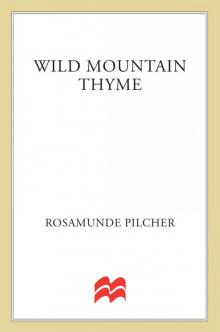 Wild Mountain Thyme
Wild Mountain Thyme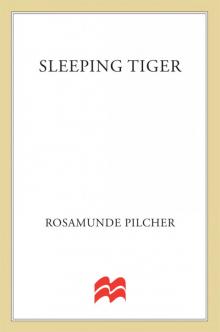 Sleeping Tiger
Sleeping Tiger Flowers in the Rain & Other Stories
Flowers in the Rain & Other Stories September
September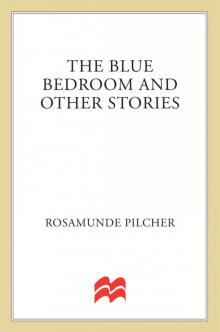 The Blue Bedroom: & Other Stories
The Blue Bedroom: & Other Stories The Carousel
The Carousel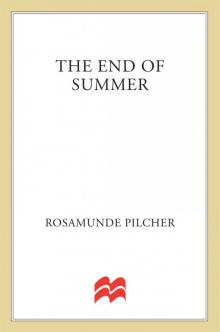 The End of Summer
The End of Summer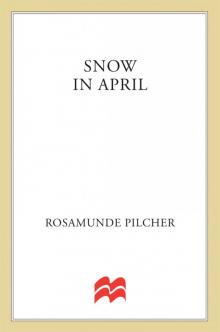 Snow in April
Snow in April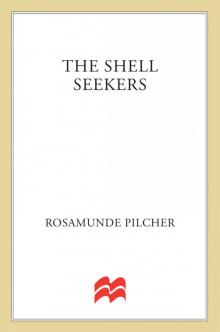 The Shell Seekers
The Shell Seekers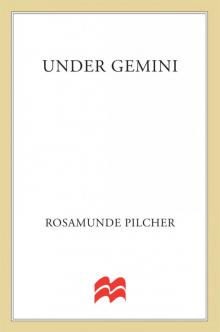 Under Gemini
Under Gemini The Empty House
The Empty House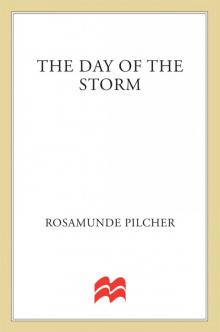 The Day of the Storm
The Day of the Storm Another View
Another View Voices in the Summer
Voices in the Summer The World of Rosamunde Pilcher
The World of Rosamunde Pilcher Voices In Summer
Voices In Summer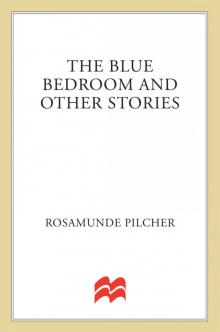 Blue Bedroom and Other Stories
Blue Bedroom and Other Stories